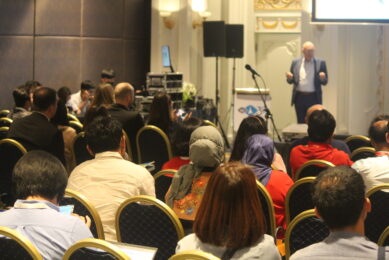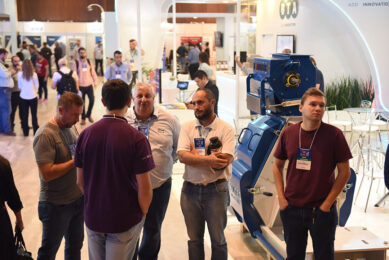Review British Pig & Poultry Fair: The UK prefers to move on after Brexit
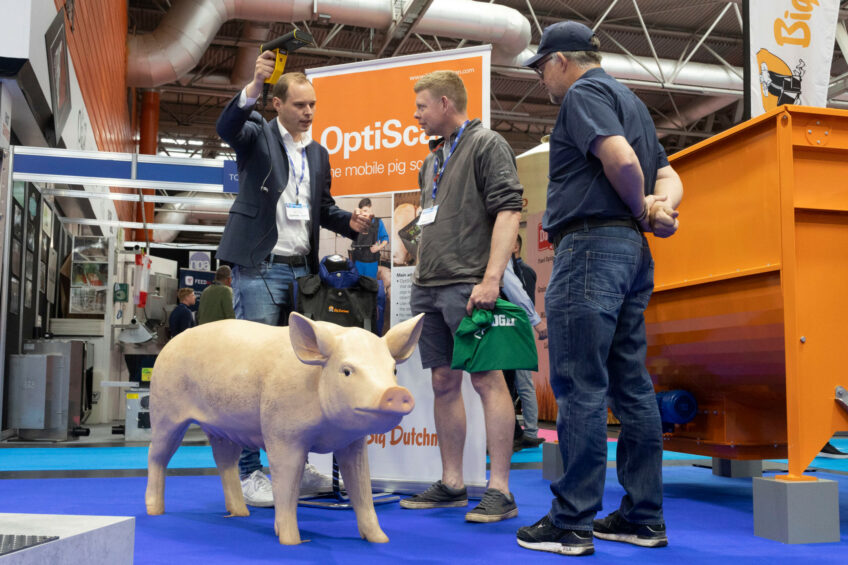
If one had to express recovery in the most careful way possible, the words were found at the British Pig & Poultry Fair, held 15-16 May in Birmingham, United Kingdom (UK). Was the crisis over? Well, yes, sort of. Can we expect investments? Possibly. And Brexit? It appeared to be long forgotten.
Quite often participants at the fair’s Pig Outlook Forum referred to “the crisis.” Speakers said 2 years ago, they hadn’t been sure whether or not they would be sitting there again in 2024. And indeed, the UK pig industry went through a perfect storm. Covid-19 and temporary closure of pork processors resulted in too many pigs in the market, which was followed by feed prices skyrocketing and cheap pork from Germany overflowing the British markets.
“But many things have happened ever since,” resumed Rob Mutimer, chairman of the National Pig Association (NPA). Indeed, over the last 24 months the sow herd in the UK shrunk by 10-15% – or captured in numbers about 18,000 sows. And suddenly in spring 2024 there is a shortage to pigs – and that on the longer term is helpful for prices as well as profitability.
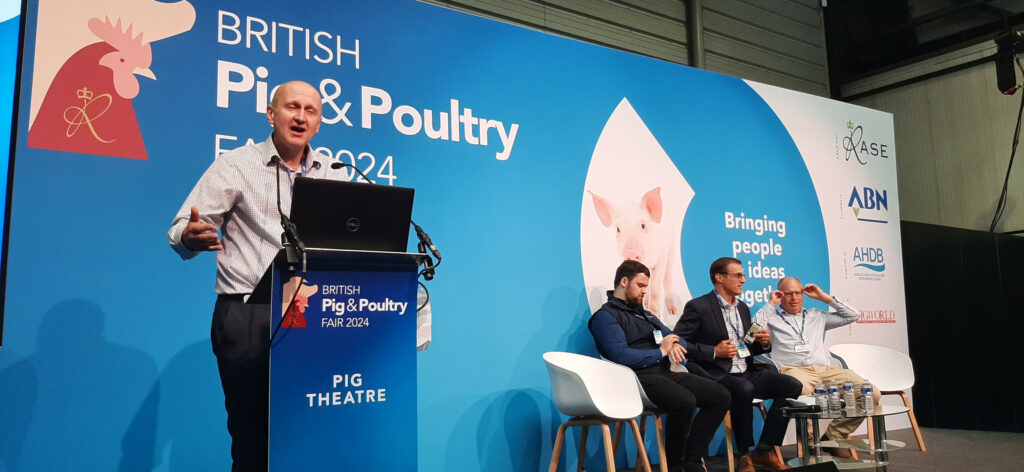
Brexit?
Perhaps the British industry had grown tired about the subject, but in this process of crisis and careful recovery the word “Brexit” did not appear to be much of a topic at the British Pig & Poultry Fair, this year showcasing 330 exhibitors and welcoming 8,320 visitors. Since the UK withdrew from the European Union in 2020, nevertheless, a lot of things changed for the kingdom. Mandatory passport controls were reintroduced for passengers from the European mainland, border checks were resumed and generally the number of paperwork for imports and exports has grown.

Andrew Palmer is knowledge transfer exchange relationship manager at the Agriculture and Horticulture Development Board (AHDB). He added, “Don’t forget the shortage of labour. Many foreign workers used to be coming to the UK because of high wages. But an indirect effect of Brexit was the devaluation of the pound, leading to a situation where many could actually find a better paid job when they stayed on the continent. So at the moment what we are seeing is that the pig industry – just like many others like health care or the food industry – are all in dire need of foreign staff. They are all struggling.”
Pork imports
As is well-known, the UK has about 40-45% of its sow herd in outdoor production. Castration is not heard of and long tails can be found in many production sites as well. At the same time, the UK is dependent on pork imports, which amount to roughly 50% of its annual consumption. This is mostly trucked in from the EU, from countries like Denmark, the Netherlands and Spain, to name a few. Those cuts would often be bacon, big hams and used in pizzas, to give a few examples.
One tangible effect of Britain leaving the single European market, was that border controls to and from continental Europe had to be re-introduced, even though in practice this turned out to be easier said than done. On the EU side, border checks were reinstated, but on the British side practice did not always match the theory. As the authorities couldn’t afford empty shelves either, goods needed to be trucked into the country swiftly, at the expense of scrutiny.
Take back control
One original thought behind Brexit was to “take back control,” a slogan with which the Conservative Party was trying to convince voters to choose “leave” at the time. In practice, however, in some aspects in the pig industry the UK continues to follow the road the European Union has been taking.
Take free farrowing for instance. This is a topic on the EU agenda to be decided on, with Germany and Austria recently having adopted legislation to move in this direction. Palmer says, “In the UK, no such legislation has been introduced, but quite a number of indoor producers, when refurbishing or investing in their farms, are looking into adaptive farrowing.” That term is used in the UK to describe farrowing pens that can be opened after a few days. As soon as the piglets are heavy and streetwise enough, sows are allowed to stretch their legs. ADHB is also doing research towards flexible farrowing and is consulting the UK’s pig producers about this.
Banning pharmacological levels of zinc oxide
Another direction in which the UK is in line with the EU is with regard to banning pharmacological levels of zinc oxide (ZnO) from post-weaning piglet feeds. That could also be seen in a large number of alternative feed ingredients, replacing ZnO, promoted at the fair. Where the EU countries had to go cold turkey in 2022, in the UK a transition phase is in place, but again Britain did not make radically different decisions.
“It helps us to be in line with EU legislation,” Palmer explained. “Thing is that we also send pigmeat – especially the so-called “fifth quarter cuts” (those not sold in Britain, ed.) – to other countries. Think of China, Indonesia or Africa. If we would have our own quality control system in place, next to the EU system, it would make things complex. If, however, we can tell those trading partners that everything is in line with EU standards, then there’s clarity and no questions asked.”
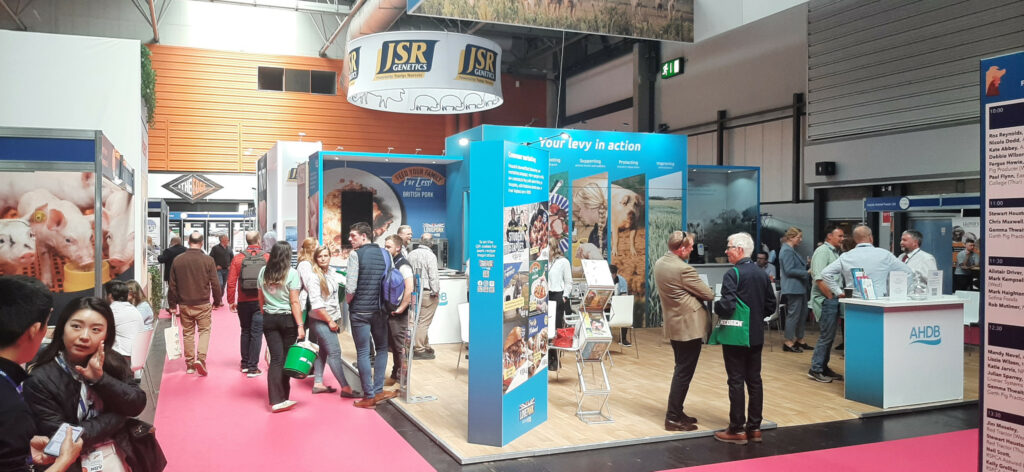
Approval of innovations
Various exhibitors point to a prolonged time needed for product approval in Britain after Brexit. In the EU, pharmaceutical products will have to be authorised by the European Medicines Agency (EMA) whereas the European Food Safety Authority (EFSA) deals with nutritional innovations. As the EU is a much larger market than the UK, in practice companies will seek marketing authorisation in the EU first, after which it is time to apply for authorisation in the UK. Obviously, the UK will have its own round of scrutiny, but the general impression is that this is a time-consuming formality.
With gene editing, however, Brexit does offer Britain opportunities. The newly developed technology by breeder PIC to breed pigs that are not susceptible to Porcine Reproductive and Respiratory Syndrome (PRRS) has already received a positive determination in Colombia and is currently under FDA review in the United States, with anticipated approval in PIC’s fiscal year 2025. It is hoped that the British legislators will eventually agree to admittance on the UK market. Should that lead to approval of the technology in the UK, it is hoped the EU’s stance against gene editing will somewhat loosen.
Shoots of recovery
In short: whether or not Brexit played a role in the crisis a few years back, remains an issue for future historians. At the British Pig & Poultry Fair, the industry preferred to look ahead and hope for better times. In the most careful possible terms, there were signs of growing confidence for Britain’s pig industry. Or, as NPA chairman Rob Mutimer put it: “There are slim shoots of recovery visible.”



